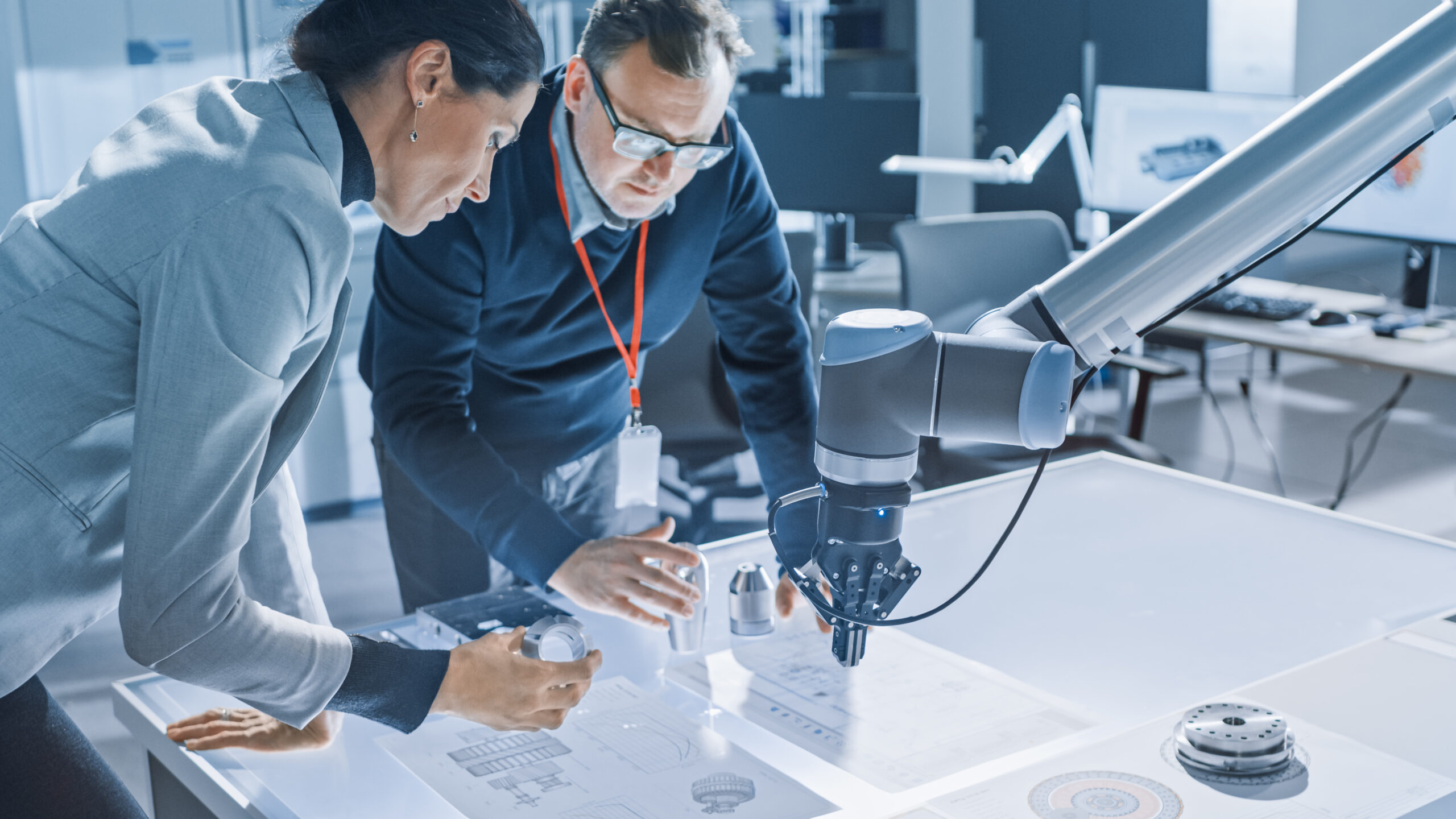AI-based robotics: how Germany can become a leader

Munich, 21 November 2023
AI-based robotics is a key technology both for the realisation of Industrie 4.0 in manufacturing and logistics as well as for facing the major challenges being posed by it to society such as demographic change. Today, robots are already taking on tasks beyond industrial manufacturing cells – and they are increasingly gaining additional skills with the aim to find their way in unstructured, changing environments even better in future. The acatech IMPULSE published today describes how Germany can become a leader in AI-based robotics, leveraging the country’s existing industrial know-how in manufacturing technology and its internationally renowned research capabilities.
Thanks to the technological advancements that have been made over the past years, the possibilities for the deployment of robots have increased, also beyond the shroud of industrial manufacturing cells. Thanks to an improved ability to recognise surroundings, as well as due to high-performing edge computing and advanced AI software, robots no longer just complete pre-defined tasks in structured environments – instead, they become intelligent systems which can navigate through unstructured, changing environments and complete complex tasks on their own or in cooperation with humans. Intuitive user interfaces and easy operation enable even laypersons to program robots, making robotics increasingly attractive for small and medium-sized enterprises. AI-based robotics and automation are therefore key building blocks in the transformative modernisation of manufacturing and logistics towards Industrie 4.0.
The potential of AI-based robotics is immense, and as a driver of innovation and productivity, it is an important competitive factor for the German economy.“
Prof. Dr. Stefan Asenkerschbaumer | Chairman of the Supervisory Board of Robert Bosch GmbH
Thanks to industrial know-how in manufacturing technology and research renowned around the world, Germany is well equipped to become established as a leader for AI-based robotics.
AI-driven robotics is a huge chance for Germany. To harness it, we need excellent, interdisciplinary research, the right specialists, and a more intense transfer of it into a scalable solution.“
Dr. Tina Klüwer | Director AI at K.I.E.Z. – Artificial Intelligence Entrepreneurship Center by Science & Startups
A deep-tech innovation, AI-based robotics requires major investments, has long amortisation times and is a huge risk for enterprises. Even national corporations cannot face these challenges on their own. If Germany is to develop into a leader for AI-based robotics, a close collaboration in terms of innovation and politics amongst economics, science and politics is needed, particularly within the following “fields of action”:
- User incentivisation: To enable the ecosystem to unfold, fostering user-driven consortiums is recommended which build a network of value creation for AI-based robotics. The user contributes use cases for novel, quickly scalable robotic solutions that are then brought to market maturity by the user, together with robot manufacturers and system integrators.
- Talent advancement, by qualified robotic and AI talents: Comprehensive qualification measures on a university level (quality pact robotics training, creation of robotics master’s programme) and occupational training shall help to close the skilled labour gap. Furthermore, measures are recommended that keep talents in the country.
- Research and transfer support: Interdisciplinary research in AI-based robotics should be promoted, preferably in centres of excellence. For a successful transfer of research findings into the application, conditions must be improved in order to enable the establishment of start-ups.
- Regulations and standardisation: Innovation-debilitating regulations (e.g. in the Data Act and in the AI act) are to be avoided. The creation of a distributed interdisciplinary testing centre for AI-based robots can contribute to the development of innovative norms and testing standards and help to secure strategic control points on an international competition level.




